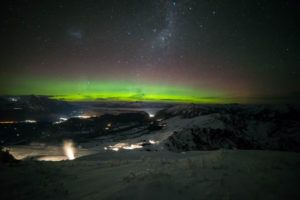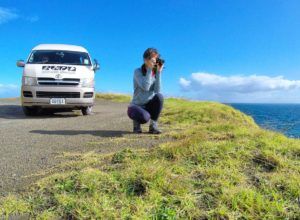New Zealand Laws for Travellers
Things that you might take for granted back home might be illegal in New Zealand, from packing a banana in your bag to driving on the righthand side of the road. That’s why it’s a good idea to have a basic understanding of the New Zealand laws before your trip. This guide to the New Zealand laws goes through regulations that concern immigration, driving and even flying drones.
A quick disclaimer; this article is a mere overview of this legal topic and has not been written by licensed law professionals.
3 Weird Laws in New Zealand
Before we get into the serious stuff, here are some strange and interesting laws in New Zealand:
- According to the Atomic Energy Act 1945; if you find uranium and don’t report it in writing within three months, you’ve broken the law
- In 2017, the Whanganui River was granted legal personhood
- According to the Reserve Bank of New Zealand Act 1989, it’s illegal to deface, disfigure or mutate a New Zealand banknote.
 © NZPocketGuide.com
© NZPocketGuide.comTravel Restrictions
Laws affecting immigration: Immigration Act 2009
First things first, can you travel to New Zealand? The first laws you will be encountering when planning a trip to New Zealand are the immigration laws.
Most travellers to New Zealand arrive on one of the following visas:
Head to the Immigration New Zealand website to discover if you legally have the right to enter the country and which visa you require.
With the recent global pandemic, travelling in and out of New Zealand isn’t as easy as it used to be. Check out the Official New Zealand Government Covid-19 website for the latest updates on New Zealand travel restrictions and border closures.
 © NZPocketGuide.com
© NZPocketGuide.comBiosecurity Laws
Laws affecting biosecurity: Biosecurity Act 1993
On arrival, you’ll experience New Zealand’s strict biosecurity laws at the border. These laws are in place to protect New Zealand’s vulnerable ecosystem from foreign pests or diseases.
Your first encounter with New Zealand biosecurity is when completing the Passenger Arrival Card. You will be asked questions on certain items you are bringing into the country. Once at the border, customs and biosecurity officers will ask you further questions about the answers given in your Passenger Arrival Card. If you fail to declare a “risk item” that has been found in your luggage, then you could face an instant NZ$400 fine.
Learn more about biosecurity and declaring risk items in What Do You Need to Declare When Arriving in New Zealand? Plus, learn about the entire arrival process in our guide, Arriving in New Zealand: Airport Customs, Biosecurity & the Arrival Process.
 © NZPocketGuide.com
© NZPocketGuide.comRoad Laws
Laws affecting road users: Land Transport Act 1998
If hiring a vehicle, knowing the road laws is essential. The obvious road rules include that traffic flows on the lefthand side of the road, you must adhere to the speed limits and road signs, don’t use a phone while driving, children under seven must sit in approved car seats, etc. You’ll find an extensive list of all of New Zealand’s road rules on the New Zealand Transport Agency website.
Otherwise, head over to our How to Drive in New Zealand and 12 Safe Driving Tips for New Zealand for common road rules to remember.
 © NZPocketGuide.com
© NZPocketGuide.comFreedom Camping Laws
Laws affecting freedom camping: Freedom Camping Act 2011
There are many places where it is illegal to camp in New Zealand. Most campers, especially those in tents and small campercars/vans, have to camp in designated campsites and holiday parks. Those in a certified self-contained camping vehicle have more “freedom” for camping on public land, but council bylaws are different in each region.
Get links to all of the council’s freedom camping pages in our Freedom Camping Rules in New Zealand: Region by Region.
 © NZPocketGuide.com
© NZPocketGuide.comDrone Laws
Flying a drone can get you some awesome travel photos. However, they are considered “aircraft” in New Zealand, meaning that when flying a drone, you must follow aviation rules. Official information can be found on the Civil Aviation Authority website.
In addition, there are strict rules about flying drones, especially over Department of Conservation (DOC) land, i.e. national parks, conservation areas, etc. Councils all have their own bylaws when it comes to flying drones, so some preparation and permissions are often necessary before flying.
Check out What You Need to Know About Flying Drones in New Zealand for more details.
 © NZPocketGuide.com
© NZPocketGuide.comConsumer Laws
Laws affecting purchasing goods and services: Consumer Guarantees Act 1993 and Fair Trading Act 1986
It’s likely that you’ll buy stuff while you’re travelling around New Zealand. New Zealand has various laws in place to help protect consumers from being sold dodgy goods or services. Fair pricing must be advertised, for instance, with the GST (tax) included.
There’s a lot to go through when it comes to consumer laws, so head over to What are Your Consumer Rights in New Zealand? for a more lengthy read.
 © NZPocketGuide.com
© NZPocketGuide.comWork Laws
Laws affecting employment: Employment Relations Act 2000, Holidays Act 2003, Wages Protection Act 1983, Minimum Wage Act 1983 and more
If you are travelling New Zealand as part of a working holiday or any other visa that allows you to work, then it’s fundamental that you know your employment rights. This concerns things like minimum wage, holiday pay, work hours and breaks, etc.
Head over to New Zealand Working Holiday Employment Rights and Working for Accommodation in New Zealand: What are Your Rights? for more information.
More New Zealand Laws That May Affect Your Trip
- Walking on Private Property: Walking Rights and Responsibilities
- Volunteering in New Zealand: What Are Your Rights?
- What Are Your Rights as a Tenant or Flatmate in New Zealand
Plus, find more essential travel advice in the 31 Tips for Travelling in New Zealand.
Sources:
The information in this guide has been compiled from our extensive research, travel and experiences across New Zealand and the South Pacific, accumulated over more than a decade of numerous visits to each destination. Additional sources for this guide include the following:
- Tourism New Zealand (General travel advice - Updated [2024])
- Immigration New Zealand (Visa and immigration advice - Updated [2024])
- New Zealand Customs Service (Customs and Biosecurity - Updated [2024])
- New Zealand Traveller Declaration (NZTD online platform - Updated [2024])
- Tiaki Promise (Care for people place and culture - Updated [2024])
- Safe Travel (NZ travel advisories - Updated [2024])
- Stats NZ (Statistics and travel data - Updated [2024])
- Waka Kotahi NZ Transport Agency (Road and transport tips - Updated [2024])
- DriveSafe (Road safety - Updated [2024])
- Council websites and freedom camping maps (Local travel advice region by region - Updated [2024])
- AdventureSmart (Know before you go - Update [2024])
Our editorial standards: At NZ Pocket Guide, we uphold strict editorial standards to ensure accurate and quality content.

About The Author
Robin C.
This article has been reviewed and approved by Robin, who is the co-founder of NZ Pocket Guide. With more than 15 years of experience in the New Zealand tourism industry, Robin has co-founded three influential tourism businesses and five additional travel guides for South Pacific nations. He is an expert in New Zealand travel and has tested over 600 activities and 300+ accommodations across the country.














![15 Best Backpacker Hostels in Tongariro National Park 🎒 [2024]](https://nzpocketguide.com/wp-content/uploads/2024/04/Tongariro-Crossing-spring-snow-landscape-scenery-Feature-Mandatory-Credit-NZPocketGuide.com_-900x506.jpg)
![10 Best Hostels in National Park Village & Whakapapa 🎒 [2024]](https://nzpocketguide.com/wp-content/uploads/2022/10/Mt-Ruapehu-snow-winter-900x600.jpg)